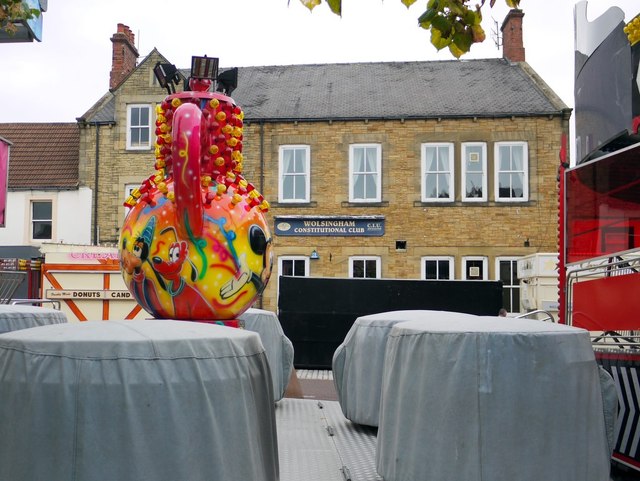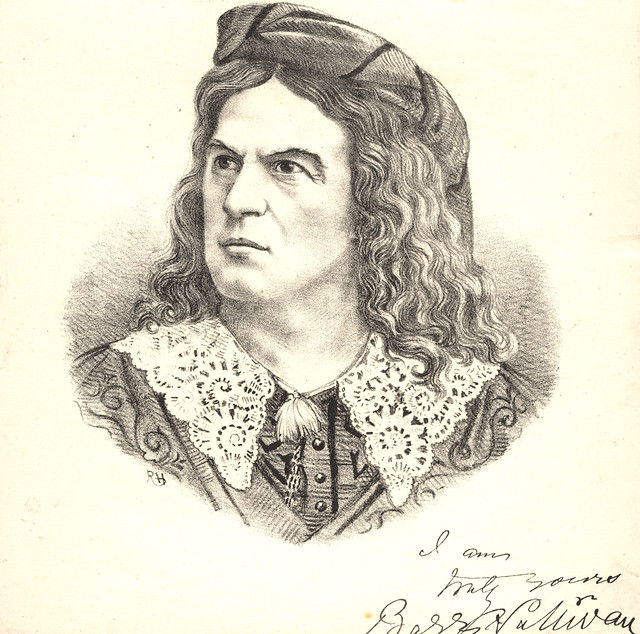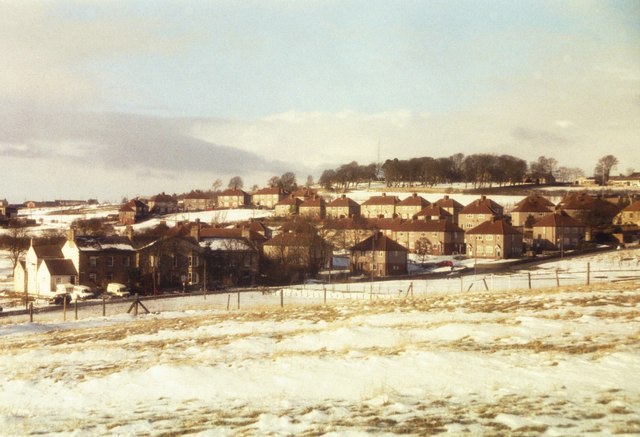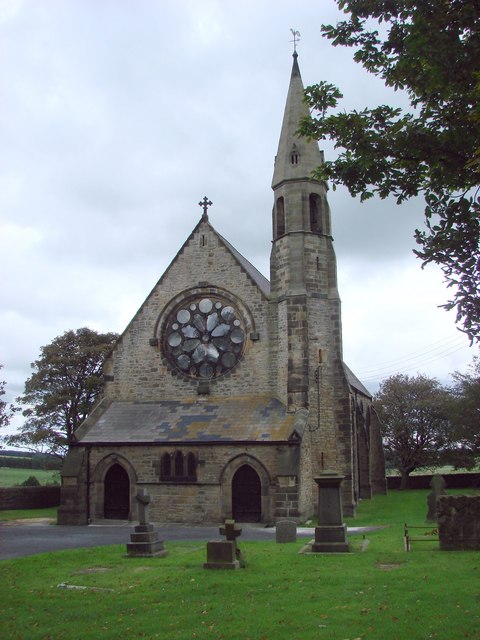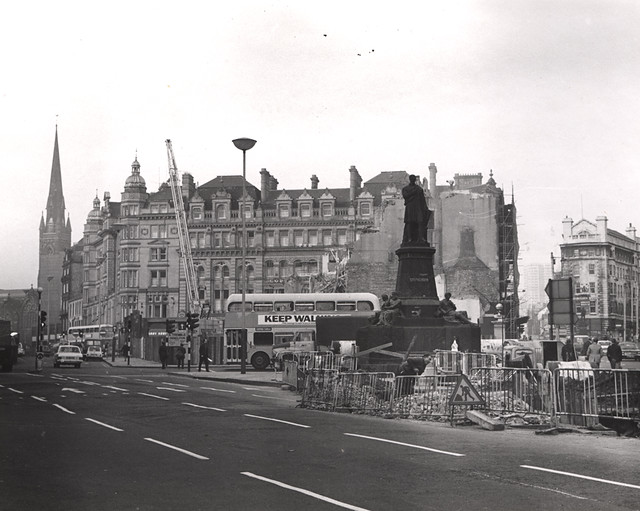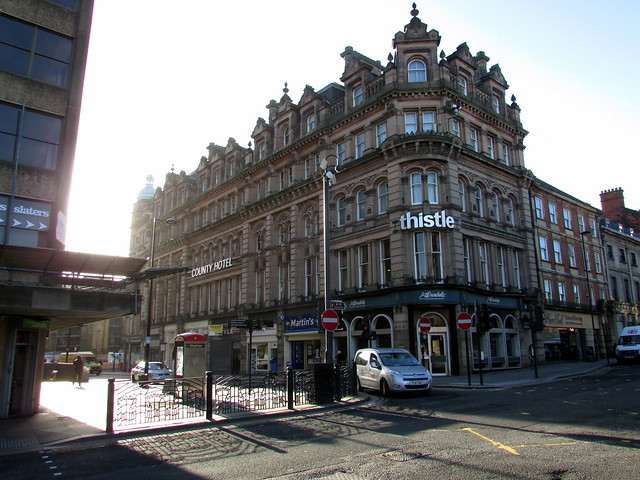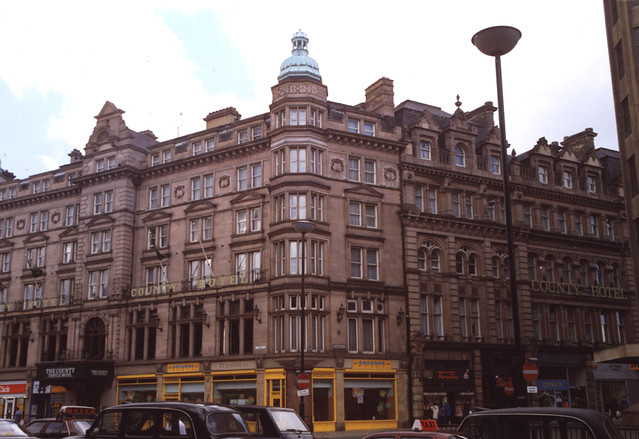Topics > People in History > Charles Attwood (1791-1875)
Charles Attwood (1791-1875)
Ironmaster and glass maker. Founded the Weardale Iron and Coal Company in 1844.
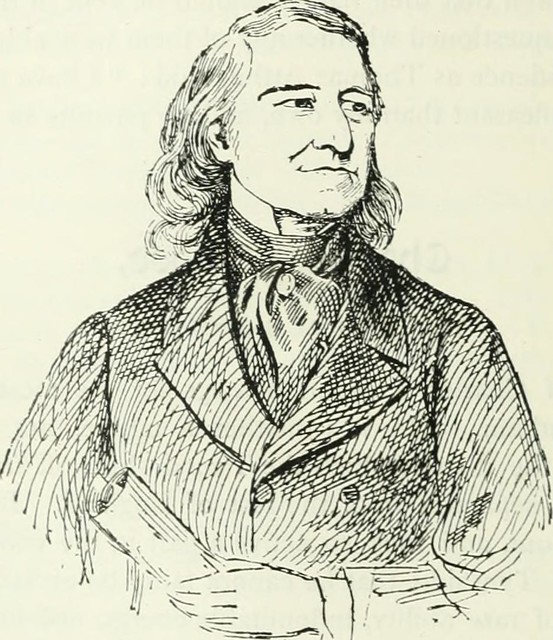
THE RADICAL IRONMASTER.
The career of Charles Attwood belongs for the most part to the county of Durham. He was neither a native, nor for long an inhabitant, of the district which the Tweed shuts off from Scotland, and the Tyne separates from the rest of England. But he was so near a neighbour, and took so active a part in the commercial and political life of Tyneside, that he cannot fairly be excluded from our list. A man of rare ability, indomitable energy, and unconquerable will, he helped at a critical period to fight what was called "freedom's battle" in Newcastle. And although with increasing years his reforming zeal abated, and the sympathies of his early manhood were chilled by disappointment and soured by distrust, he retained to the last an active interest in all public movements that tended to promote local enterprise and encourage local endeavour.
Son of an ironmaster in Shropshire, where he was born in the year 1791, Charles Attwood came, at the age of twenty, to Gateshead, and obtained a share in a small manufactory of window glass. In three years he had bought out his partners, and was a glass maker on his own account, with a large stock of new ideas to work upon, and sufficient capital to carry him safely through it. He patented one of his inventions, and had good prospects of success, for it enabled him to give a transparency to glass which it had not previously possessed. Three years of assiduous labour, however, were consumed in perfecting the process, and before he could make any profit he was involved in a law suit. When the case was decided in his favour, after nine years' litigation, he found that the persons from whom he should have recovered his costs were mere men of straw; so he moved along quietly until his patent expired, when the principle was taken up by others with profitable results.
Deprived of the first fruits of his enterprise in the glass trade, Mr. Attwood turned his attention to the business which his father and grandfather had followed before him. Railway development was creating a demand for iron, and at the same time facilitating its manuacture and distribution. With the Barings, of London, at his back, Mr. Attwood obtained a lease of the ironstone underlying the widespreading manors of Wolsingham and Stanhope, erected blast- furnaces at Tow Law, and commenced life afresh as an ironmaster. In this department of industry he was as successful as in the production of glass he had been unfortunate. Under his management the Weardale Iron and Coal Company, as the firm was called, rose to be one of the greatest manufacturing concerns in the district. Ironstone mines and lead mines ; collieries and quarries ; furnaces, forges, and rolling mills ; industrial populations at Tow Law, Stanhope, and Tudhoe — all these owe their origin, their development, and their prosperity, to the restless energy and the inventive skill of Charles Attwood.
Busy as he was with schemes of commercial and manufacturing advancement, Mr. Attwood, from the outset of his career, was an active politician. Into the agitation which preceded the Reform Bill of 1832 he threw himself energetically. He was a member of both the Birmingham and the North of England Political Unions. With his brother Thomas he helped to rouse the Midlands; with Fife and Doubleday, Headlam and Larkin, he led the van in Newcastle. He presided at the meeting in the Music Hall at which the Northern Political Union was launched, pledged himself " to support the friends of the people," and " to employ all legal means in procuring the reform of monstrous and mischievous abuses, whether in our civil or ecclesiastical establishments." Of this organisation he was made treasurer, and very soon it had branches all over the Northern Counties. When the House of Lords, in October, 1 83 1, rejected the Reform Bill, the Northern Political Union became the most potent political force in the district, and Mr. Attwood was its inspiring genius. Ten days after the Lords had "defied the country," the Northern Political Union met and defied them. Only once before had such a demonstration been seen in the streets of Newcastle. Mr. Attwood was drawn in his carriage from his house at Whickham to the rendezvous in Westgate Street, and proceeded to the Town Moor, accompanied by 50,000 people. Over that vast assemblage he presided, expressing in bold and vigorous language sentiments which Eneas Mackenzie, John Fife, W. A. Mitchell, Thomas Hepburn, W. H. Brockett, and Charles Larkin in equally vigorous terms supported.
When Parliament re-assembled and the Reform Bill was again introduced, the Northern, imitating the example of the Birmingham Union, passed a resolution which practically affirmed the right of the people to refuse payment of taxes until the Bill became law, Mr. Attwood declaring that " if the aristocracy will withhold from the people their rights, we wash our hands of it; but the people are determined to be free." In May, 1832, the famous Spital meeting was held, a meeting memorable for the impassioned speech of Mr. Larkin, in which King William IV. was reminded of the fate of Louis XVI., and Queen Adelaide was warned that a fairer head than hers had rolled upon the scaffold. Mr. Attwood rebuked his colleague for indulging in language which he thought likely to injure their cause, but the meeting was probably more in harmony with the orator than with his critic. Next month the Reform Bill became law. Fife and the Whigs were satisfied; Attwood, Doubleday, and Larkin accepted it as an instalment only of greater reforms to come. Hence arose dissensions, and the breaking up of the Union. Fife resigned, and, in a manifesto which he issued to his late colleagues, he put Mr. Attwood in the forefront of the offenders whose conduct had led to his resignation. " Mr. Attwood," he wrote, " required from me a declaration that I would not at any future time attempt to make the Union the tool of the Whigs; I appealed to my character and conduct against so insulting a suspicion, but without hesitation gave my pledge. In return I required from Mr. Attwood a declaration that he would never attempt to make the Union the tool of Cobbett; he appealed to his character and conduct, but refused his pledge."
,PThe Parliamentary elections followed. Sir M. W. Ridley and Mr. John Hodgson, afterwards Mr. Hodgson Hinde, were the candidates for Newcastle. They had been returned without opposition the previous year, and now it appeared to the Radicals that the representation was to be divided between the two old parties, and that they were to have no share in the victory. To prevent this combination from succeeding, they drew up a requisition to Mr. Attwood, and on Saturday, the 8th December, only three days before the nomination, he consented to stand. That evening he issued his address to "the Worthy and Independent Free Burgesses and Inhabitant Householders of Newcastle-upon-Tyne," announcing himself in favour of household suffrage and the ballot, and the following, among other, reforms: — "I am for expunging from the statute book that infamous enactment, the Septennial Act, and for reverting to, at least. Triennial Parliaments. I am for a real abolition, or extinction of the Tithe Tax, which is not, at present, a tax upon the landlords, as has been deceptively pretended, but a tax on bread. I am eternally hostile to the Corn Laws as another bread-tax; a tax the most inhuman and execrable that the genius of fiscal tyranny has ever yet invented, and existing in the present case without so much as a pretence of public use, inasmuch as it goes not into the public treasury, but into the pockets of the owners of the soil, in plunder of the people generally, and to the actual starvation of the poor. I am a decided reformer of Corporations, generally, and though at present unacquainted with details, I am sufficiently aware that the Corporation of this town is in need of it as much as any."
Mr. Attwood's friends mustered in the Music Hall on Monday evening, and on the following day they marched down in long procession to the hustings. There the show of hands was in favour of their candidate, and great were their rejoicings. They met again on the Wednesday evening, exchanged congratulations, and made exultant speeches. They covered the walls with handbills headed " Attwood for ever," and even indulged in a little mural humour such as — " Independent Electors of Newcastle ! Haste to the Poll, and show the Son of Hodge what you Wood be Att ! "
But all their enthusiasm was unavailing. The poll opened on Thursday morning, December 13th, and at noon the figures were — Ridley, 900; Hodgson, 743; Attwood, 467. When night fell the position was not much better, and, although at an early hour next morning "the enemies of corruption who have not polled " were told that they " must rally round the standard today — Attwood and Liberty ! " the close of the poll showed that Sir M. W. Ridley had received 2,105, Mr Hodgson 1,678, and Mr. Attwood 1,092 votes.
A defeat so decisive had not been expected. Mr. Attwood and his friends believed that the enthusiasm of the crowd was the voice of the electorate, and like many other politicians, both before and after, were deceived and disappointed. The rejected candidate issued a valedictory address, in which he threw all the blame upon the Whigs. Thus he began : — " The cause of your independence, the cause of public principle, the cause of integrity and liberty, has been, for a time, defeated by the return of Mr. Hodgson to the House of Commons. In opposition to your wishes, in defiance of your feelings, in open and outrageous insult to the freedom of election, all whom influence could persuade, or intimidation force, or interest compel, have been made to swell the ranks of the few internally and conscientiously opposed to your desires, till the heterogeneous torrent became of magnitude sufficient to drown the expression of the public voice. It is not merely to Tory corruptionists and Corporation speculators that you, gentlemen, and your unrepresented fellow townsmen are indebted for your late defeat, . . . assisted as they have been by threatening or cajoling parsons, by intimidating tyrant-masters, and Puritans whose canting cadences distil so suitably from lying lips. No, gentlemen, it is the false reformers whose apostate voices have determined the victory in favour of corruption and of mock reform. You owe it truly to those recreant Whigs — that renegade faction — who have found their way to power by favour of the people under a parti-coloured garb of Liberal professions, which they are now afraid that you may force them to redeem. It is the deed and device of this imbecile Cabal of double-dealing Patriots to have mocked your intention of sending to the House of Commons a Representative scarce worthy of yourselves it may be, but one at any rate whose boast it is that he is as far unlike to them as Fortitude, Intellect, and Honour are opposed to Meanness, Incapacity, and False Pretences."
Although defeated, the Radical party were by no means despondent. They considered that, under the circumstances, Mr. Attwood had made a respectable fight, and they determined to relieve their feelings by entertaining him at a public banquet. Four hundred persons and more sat down to dinner, and the proceedings were as enthusiastic as if the participants had been celebrating a victory rather than a defeat. How they spoke and sung and cheered, the newspapers of the day bear witness, and these were their toasts and songs : -
The King. — God save the King. The People the true source of legitimate power. — Rule Britannia. The Reformed Parliament, and may it do its duty to the People by the removal of every abuse, and the redress of every grievance. — Ca Ira. Charley is my darling. The glorious minority of 1092. — Scots wha hae wP Wallace bled. The proposer and seconder of Mr. Attwood. — A man^s a man for a' that. The reformers of England, Scotland, and Ireland. — Hearts of Oak. The freedom of election, and its only security the ballot. — Britons, strike Home. The immediate and utter extinction of Tithes, and separation of Church and State. — Turn the Rogues out. The Liberty of the Press. — Tyi-olese Song of Liberty. Corporation Reform. — Canny Newcastle. The restoration of Poland essential to the honour of England, the safety of F'rance, and the liberty of Europe. — Polish Air. The heroes of the three days in Paris. — The Marseillaise Hymn. Mrs. Attwood and the Ladies. — Here's a health to all good Lasses. The Chairman. — Because he was a bonny Lad.
From this time forward Mr. Attwood's participation in public affairs was less conspicuous. He devoted himself to the development of his undertakings in Weardale, and Tyneside saw little of him. But when the Russian war was raging his voice was heard in Newcastle again. The Northern Tribune for September, 1854, tells us that "his speech, denouncing 'the traitor Aberdeen,' and unveiling the drivelling and fatal policy of the Coalition, has sounded through the land, and its thoroughly English sentiments have been echoed by all true patriots from 'canny Newcastle' to Land's End." Those of us who heard him on that occasion for the first time remember well the flouts, the jibes, the sneers, and the bitter sarcasm in which he indulged, the bold and defiant attitude which he assumed, and the uproarious applause with which his fiery invective was received. He had become a disciple of David Urquhart then, and, under the inspiration of that remarkable politician, he occasionally afterwards " took up his parable " against the Government and its administration of foreign affairs. He was entertained at a banquet in Newcastle in February, 1863, and on the ?7th of that month, speaking at a meeting in Nelson Street Lecture Room on the claims of Poland, he made his last public appearance in Newcastle. He took part in the South Durham election of 1865, and after that he was heard no more. On the 25th of February, 1875, at his beautiful home near Wolsingham, in his 85th year, he passed away, and on the 3rd of March four of his old servants carried his remains to their resting-place in Wolsingham churchyard.
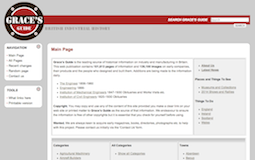
from https://www.gracesguide.co.uk…
Charles Attwood
- "Charles Attwood (1791-1875), ironmaster and glass maker, of Charles Attwood and Co
1791 Born on 25 January 1791 at Hawne House near Halesowen, the sixth of seven sons of Matthias …
Added by
Simon Cotterill
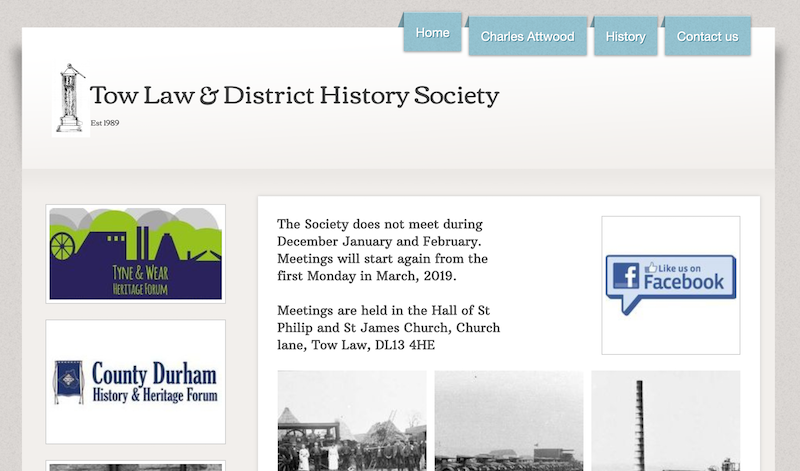
from https://towlawhistory.webs.co…
The Founder of Tow Law
- Detailed article by By Ron Storey. "The name Charles Attwood may not come readily to mind when looking into the history of our town, but without him and his natural …
Added by
Simon Cotterill
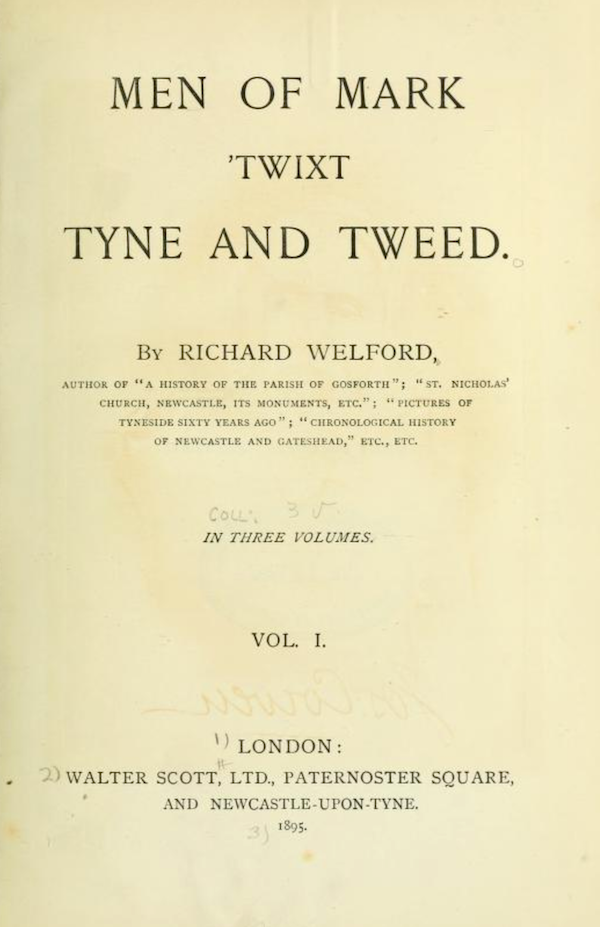
from https://archive.org/stream/me…
Men of mark 'twixt Tyne and Tweed by Richard Welford, 1895
- Digitised by the University of Toronto.
Added by
Simon Cotterill


from https://www.gracesguide.co.uk…
Charles Attwood
- "Charles Attwood (1791-1875), ironmaster and glass maker, of Charles Attwood and Co
1791 Born on 25 January 1791 at Hawne House near Halesowen, the sixth of seven sons of Matthias …
Added by
Simon Cotterill

from https://towlawhistory.webs.co…
The Founder of Tow Law
- Detailed article by By Ron Storey. "The name Charles Attwood may not come readily to mind when looking into the history of our town, but without him and his natural …
Added by
Simon Cotterill

from https://archive.org/stream/me…
Men of mark 'twixt Tyne and Tweed by Richard Welford, 1895
- Digitised by the University of Toronto.
Added by
Simon Cotterill
